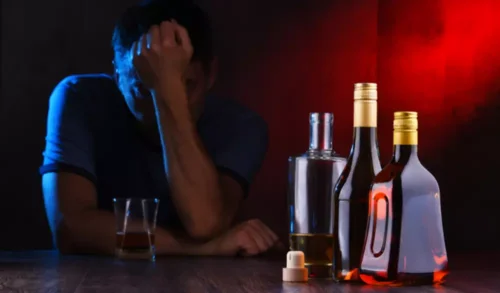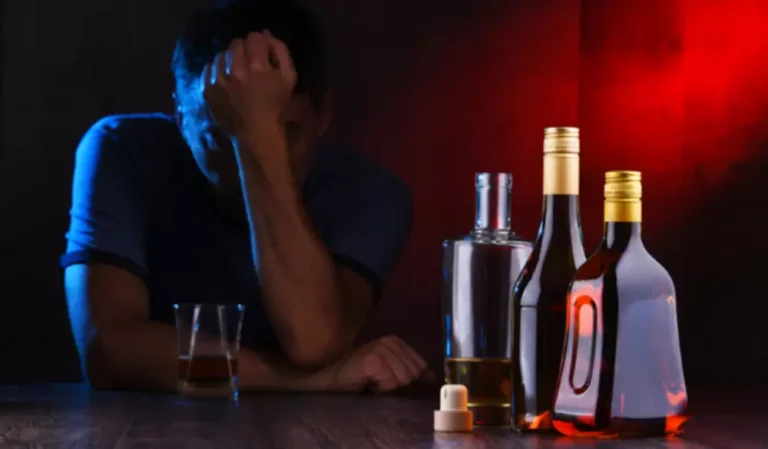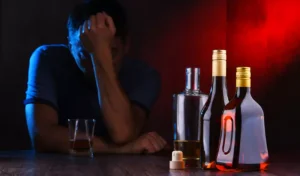
Lowered inhibitions can lead to poor choices with lasting repercussions — like the end of a relationship, an accident or legal woes. Each of those consequences can cause turmoil that can negatively affect your long-term emotional health. “The good news is that earlier stages of steatotic liver disease are usually completely reversible in about four to six weeks if you abstain from drinking alcohol,” Dr. Sengupta assures. “Some people think of the effects of alcohol as only something to be worried about if you’re living with alcohol use disorder, which was formerly called alcoholism,” Dr. Sengupta says. The full impact of drinking too much hits about 72 hours after the alcohol has left the bloodstream. This is when withdrawal symptoms of increased anxiety, irritability, restlessness, agitation and disturbed sleep, among others, are at their peak.
- Allen reportedly told prison staff he killed the girls to give his family “more time to be free.”
- If you rely on alcohol to mask feelings of depression, you may find you become reliant on it – putting you at risk of alcohol dependence.
- If you need urgent help with your mental health, you don’t have to struggle alone.
- Emotional abuse can lead to the onset of eating disorders, but help is available.
Relieving depression linked to drinking
- Alcohol is a natural disinhibitor — meaning it can cause you to make choices you may not make while sober.
- Alcohol can produce feelings of euphoria and excitement, making you feel instantly happier and more confident, but those feelings are fleeting.
- These diseases disrupt liver function, severely damaging the body over time.
- Some clinical features of AUD may also precipitate sleep disorders, such as a preoccupation with obtaining alcohol and AUD-related psychosocial stressors.
Still, with either time change, there can be an uptick in sleep disruption and mood changes. Some people may be less inclined to go back out after work if it is dark, for example, and that may impact mood as they have changes in social interactions, Benjamin explained. “Everyone has an individual sleep need and circadian predilection, Foldvary-Schaefer said, noting that some people may naturally be “night owls” and prefer the darker days.
Mayo Clinic Press

Stigma can does drinking make your depression worse be reduced with normalization statements such as “Many people try (cannabis or painkillers in ways that are not prescribed) at some point in their lives; is that something you have tried? ” See the Resources section, below, for SUD screening and assessment tools. Alcohol use disorder can include periods of being drunk (alcohol intoxication) and symptoms of withdrawal. Because of the complicated relationship between depression and alcohol use, Lurie says it’s best to address both at the same time through a specialized treatment program. He drank daily in his early 20s — around the time when he started experiencing suicidal thoughts. He says his drinking — and depression — “skyrocketed” at age 24 after his grandmother died.
How Alcohol Impacts the Brain

Also, teens who’ve had a bout of major depression are twice as likely to start drinking as those who haven’t. And if you start drinking at an early age, your risk of alcohol use disorder is higher. After binge drinking, individuals often experience extreme mood swings, leading to feelings of guilt, shame, or sadness. These emotional crashes can trigger or worsen depressive episodes, feeding into the harmful cycle of alcohol and depression. While alcohol may appear to provide temporary relief from stress or anxiety it certainly does not, it also leads to a long-term sense of dependence and worsens these conditions. Over time, individuals feel the need to consume more alcohol to achieve the same effects, which can exacerbate feelings of depression and anxiety.

“I used alcohol to cope with feelings of isolation and sadness,” he says. Gillian Tietz, host of the Sober Powered podcast, began feeling depressed around 10 years old when she faced bullying in school. In addition to a low mood, Tietz often experienced extreme fatigue, apathy, and difficulty focusing. Kitley ultimately decided to detail her experiences with drinking and depression in her autobiography, “MY self.”

- The more you drink the greater your tolerance for alcohol, meaning you need to drink more alcohol to get the same feeling.
- Your whole body absorbs alcohol, but it really takes its toll on the brain.
- It may temporarily suppress feelings of isolation, anxiety, or sadness, but that won’t last.
Alcohol affects the levels of serotonin and other chemicals in your brain, so it affects your body and mind in various ways the next day. It can be tempting to drink if you’re feeling unhappy, but there’s a better solution out there. When treating depression and substance abuse, consult with a mental health professional and/or an addiction specialist who can provide resources and recommendations for possible treatment options. If you’re battling depression, alcohol isn’t going to make you feel better.
